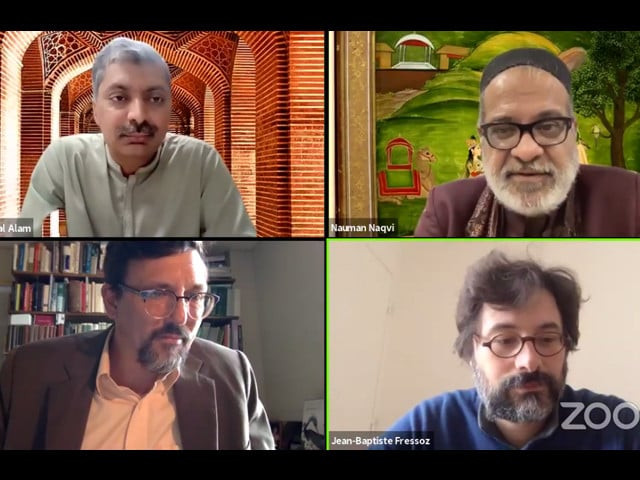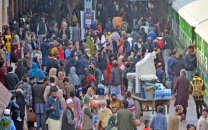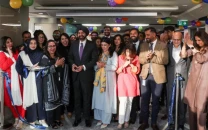‘Decolonial thoughts’: Experts discuss flipside of progress
Academics pore over ways to heal wounds inflicted on environment by capitalism

The virtual conference virtually started with these comments of one of its participants – Jean-Baptiste Fressoz – that our ancestors destroyed the environment in full awareness of what they were doing.
Fressoz – a French academic and historian who was also attending Habib University’s 4th Conference on Post-Colonial Higher Education tilted “Reparative, Decolonial Thoughts in the Global Ruins” – was the first to speak on the Anthropocene.
The Anthropocene is an unofficial unit of geologic time, used to describe the most recent period in the Earth's history when human activity has started to have a significant impact on the planet's climate and ecosystems, mostly for worse.
According to Fressoz, the idea that deforestation was impacting the ecosystem was very much there even in late 18th century Europe and was even used by France as a one of the justification for invading Algeria in 1830 and for its colonisation.
“The idea that colonisation was a restoration of nature was very central to the justification of colonisation and invasion. For colonisers, it was necessary to describe the colony as a ruined country – a country that is ruined, destroyed, environmentally destroyed,” he said.
The academic argued that the technologies that accelerated the pace of environmental degradation were introduced very late in the United States, primarily as an outcome of competition and world wars.
Fressoz said the technology used in development of chemical weapons during World War I led to the production and marketing of fertilisers while the construction of a large network of roads and highways took place by the time of World War II.
The French historian postulated that the west entered the Anthropocene age knowingly and that the Anthropocene was a historical choice
“It is important to have a proper history of the Anthropocene if we want to talk about solutions. It is a sum of crises where the military is important; where capitalism is important; where nationalism is important; where international competition is important,” he added.
The second major participant of the conference was Professor George Weiblen, a plant biologist at the University of Minnesota, who talked about his personal experiences as a scientist studying the plant life in both his hometown and Papua New Guinea, a country of immense cultural and biological diversity.
Professor Wielben noted how cultural diversity is shrinking at a pace even faster than the shrinking of biodiversity due to globalisation. He cited examples of various smaller languages that are losing their speakers at an alarming rate.
Summing up his experiences as a botanist, he, however, argued that mankind could also heal and repair the ecosystem to some extent and ensure its own survival if it learnt to thrive with diversity; live within its limits and adapt to change.
Earlier, Nauman Naqvi, an academic associated with Habib University, noted that the man now lived in a profoundly damaged world where the great acceleration of the Anthropocene had laid bare the extraordinary destruction and ruination that the world has experienced in the modern period.
He said the monumental losses and ruinations of the age go well beyond the biosphere that is the very ground of all life on the planet and it now manifestly encompass the ruination of equalities, economies, societies, ethics, religions and traditions.
“The unprecedented modern processes of acceleration and ruination that have brought us to this conjuncture include not just global capitalism but concurrently the racist phenomena of colonialism and nationalism.
“Together they have inaugurated a global form of life in which universal competition and enmity is the real motto of progress as well as both sociological and ecological destruction.”
He said the current coronavirus pandemic had only brought into even greater relief the tremendous injustice and sufferings that are endemic to the global form of life everywhere.
“Even as there is now nowhere to hide from the Anthropocene as an ecological catastrophe becomes a feature of the quotidian global new cycle, reparations are in order.”
Naqvi said the conference aimed “to speak the truth of our condition and its causes and to reflect on how our world may be repaired for a future of possibilities rather than dead ends.” The session was co-chaired by Shah Jamal Alam.



















COMMENTS
Comments are moderated and generally will be posted if they are on-topic and not abusive.
For more information, please see our Comments FAQ